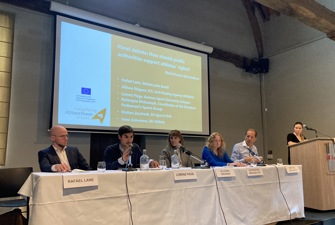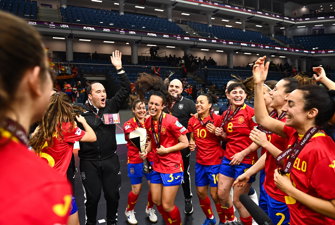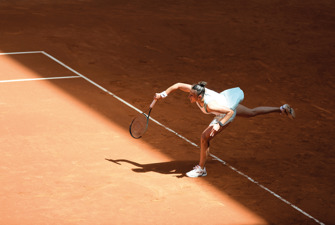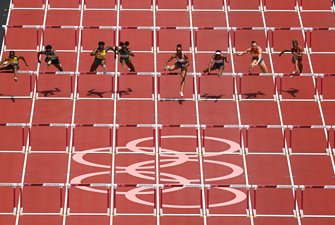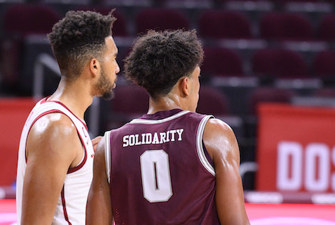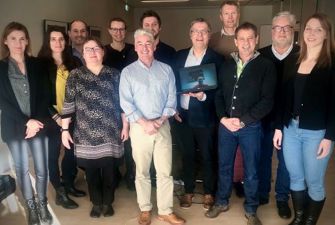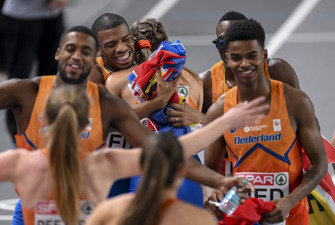Strengthening Athlete Power in Sport
The project ‘Strengthening Athlete Power in Sport’ (SAPIS) aims to strengthen the influence and representation of athletes in the governance and management of the sports organisations they belong to.
Among the many challenges in international sports governance is the fact that athletes are often not allowed to participate effectively in decision-making processes within their own sport.
The SAPIS project aims to directly address this deficiency by examining the extent of the ‘lack of voice’ for athletes, how it is distributed across European sport, and how models of better practices can best be developed.
The project will:
- describe the opportunities for athletes to participate in and contribute to the decision making in their sport
- map the existing structures and practices for athlete representation
- identify ways to strengthen the capacity of athletes to take part in decision-making in sport
Learn more about the project
As athletes are the sine qua non of international sports competitions, they should as a matter of justice be entitled to influence the environment in which they spend most of their time and efforts. This is particularly important as most national and international federations in principle are democratic organisations that draw legitimacy from their bases of millions of athlete members.
However, often athletes do not enjoy such rights. In many places, athlete organisations have clearly expressed their experiences of neglect and even exploitation in the processes of sport production in recent years.
The Russian-international doping scandal has shown how athletes have been marginalised by sport organisations, and it has inspired a growing number of calls from athlete organisations to be better included in decision-making structures in WADA, and in sports organisations in general.
Currently, there is no place for athletes and policy makers to look for specific guidance or models of good practice that can be adapted and implemented in pursuit of better athlete representation.
The SAPIS project aims to directly address this deficiency by examining the extent of the ‘lack of voice’ for athletes, how it is distributed across European sport, and how models of better practices can best be developed.
The current lack of an overview of athlete-related governance, and the lack of experience within the athlete community to participate in decision-making processes requires an innovative approach.
The SAPIS project will be innovative in a number of ways by:
- comprehensively mapping the width, depth and quality of athlete representation, the powers associated with representation, and their action-generating power
- producing an overview of effective ways for athletes to communicate and seek influence in the governance of the 35 Olympic sports
- providing new insights for policymakers and governments by showing the benefits of more democratic inclusion of athletes in decision-making processes in sport
- building networks and facilitating dialogue between a wide range of stakeholders including the association-based sports movement, athletes and athlete organisations, public authorities, and other societal actors
- offering regional workshops with training and capacity building for athletes, athlete organisations, sports officials, policy makers, and other relevant stakeholders.
During the three-year project period from 2020 to 2022, project partners will carry out a number of concrete activities. They include:
- A review of the available academic literature in the field of athlete representation in sport
- Mapping existing formal and informal athlete representation structures within Olympic and non-Olympic sports at the level of rule-takers as well as rule-makers
- Case studies of good practices for representation from the sports movement as well as other sectors with strong experiences of membership-based representation, e.g. trade unions
- Analysis of strengths and weaknesses linked to athlete activism in less formal settings such as campaigns, individual or collective actions on social media etc.
- Development of innovative solutions for athlete representation in sports organisations and athlete participation in the wider sports political debate
- Recommendations for how to implement new solutions for athlete representation in small, medium and large European-wide and international sports organisations and federations
- Educational and training opportunities for capacity building among athletes, sports leaders, and policy makers
- Establishing sustainable networks between academics, athletes, athlete organisations, sports organisations, and other key stakeholders with an interest in good governance in sport
- Publication of research in a user-friendly format in the field of athlete representation
- Initiation of public debates on sports governance with specific reference to the role of athletes in the governing structures of sport
The groups who will benefit from this project are:
- Athletes participating in Olympic sports at a continental or European level
- Athlete representatives and representatives from Olympic sports at European or international level
- Elected and employed sports officials in national and international sports organisations and national federations, WADA, the Olympic movement etc.
- External stakeholders and policy makers from the sports community in Europe (e.g. Council of Europe and Enlarged Partial Agreement on Sport)
- Employees of ministries, local administrations and public institutions with relation to sport
- Activists in the field of athletes’ safety and athletes’ rights
- Academic and non-academic researchers and journalists
- The wider public (e.g. fan groups and stakeholder groups)
The project is coordinated by Play the Game along with a number of project partners:
- Swansea University, Wales, UK
- Utrecht University, the Netherlands
- Pompeu Fabra University, Spain
- University of Ljubljana, Slovenia
- European Elite Athletes Association
- Football Players Association of Finland
- The Dutch Olympic Committee*Dutch Sports Federation
Additional resources
General guide on organising: The players guide to social dialogue - how to set up an effective player association
Organising women athletes: Improving player associations’ support for women athletes
Booklet on good practices: ProMobility Good Practice Booklet
The project is co-funded by the European Union's Erasmus+ programme with a grant of approximately 251,000 euro.

All publications related to the SAPIS project reflect the views only of the project partners and authors. Neither the European Education and Culture Executive Agency (EACEA) nor the European Commission are responsible for any use that may be made of the information it contains.


